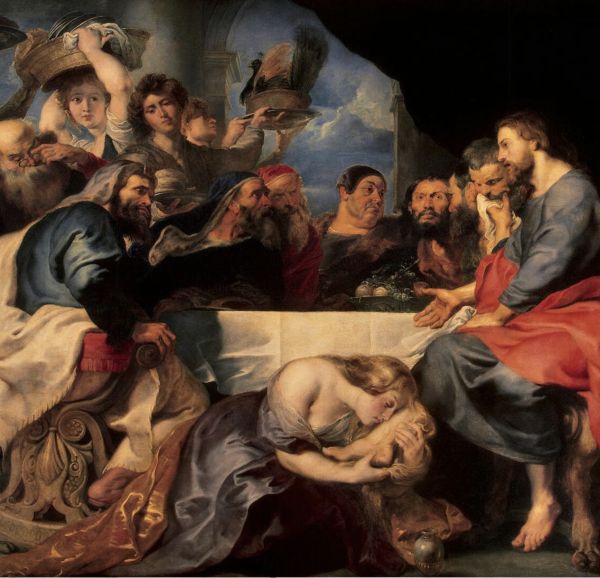Jesus' agitation over the imminent betrayal-delivery of Judas had caused questioning, pain and sadness in the disciple He loved and in all His intimates.
Francis (like John) was indeed 'the one Jesus loved', as he lived with his head reclining on the heart of Christ, feeling all the pulsations and twitches of his being handed over to his tormentors.
The morsel dipped and given to Judas Iscariot had caused Francis to place himself before the Cross, contemplating it.
Looking at it, he loved to call himself "a new madman", referring to St Paul, to the madness of the Cross (cf. 1 Cor 1:18-25).
The Poverello's madness consisted in wanting to live according to the Gospel, as Christ had outlined it.
According to some accounts he used to repeat: 'Love is not loved'. This was the cry that resounded in his heart and on his lips.
"Once he went alone near the church of Santa Maria della
Portiuncula, weeping and lamenting in a loud voice.
A pious man, hearing this, assumed that he was suffering from some illness or sorrow and, moved by compassion, asked him why he was weeping so.
Francis said:
"I weep for the passion of my Lord. For love of him I should not be ashamed to go moaning aloud for all the world".
Then the devout man also joined in Francis' lamentations.
Often, on rising from prayer, his eyes seemed to be full of blood, so reddened were they from weeping.
And he did not confine himself to tears, but, in memory of the sufferings of Christ, abstained from eating and drinking" (FF 1413).
In the soul of Francis, that morsel dipped and given to Judas was enough to abstain from all food, such was the pain and bitterness in Christ, delivered from human gain.
Clare of Assisi, who also understood the Passion of Jesus, continually meditated on the mysteries of the Cross.
"The Crucified beloved returns the lover, and she who is so inflamed with love for the mystery of the Cross, is by virtue of the Cross made luminous by signs and miracles.
For when he traced the sign of the life-giving Cross on the sick, he prodigiously removed sickness from them" (FF 3218).
«Having dipped the morsel therefore, he took it and gave it to Judas, the son of Simon Iscariot» (Jn 13:26)
Holy Tuesday (Jn 13:21-33.36-38)












